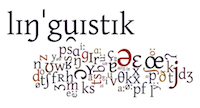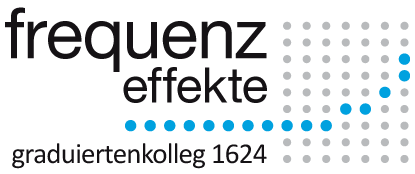CV
09/2016 – present: Assistant professor, Department of Slavic Languages, University of Innsbruck
03/2016 – 09/2016: Research coordinator (part-time), Research Training Group GRK DFG 1624 “Frequenzeffekte in der Sprache”, University of Freiburg.
10/2013 – 09/2016: Research assistant and lecturer (part- and full-time), Section of German linguistics, German Department, University of Freiburg
Education
01/2016: PhD in linguistics (summa cum laude), University of Freiburg
11/2009: Magister Artium degree in English and German Linguistics from Leibniz University of Hanover (with honours), Germany
09/2005 - 10/2006: Studies of Economics and Business Administration at University of Hanover, Germany
07/2003: Diploma degree in English and German Philology (Specialisation: Language Education) from Ryazan State University (with honours), Russia
Grants and scholarships
05/2015: Travel grant for ISB 10, New Brunswick, NJ, from the German Academic Exchange Service (DAAD).
03/2014: Travel grant for GURT 2014, Washington, DC, from the International Graduate Academy (IGA), Universität Freiburg.
11/2010 - 09/2013: PhD scholarship, Research training group DFG GRK 1624/1 "Frequency Effects in Language", Freiburg.
07/2010 - 10/2010: Launch scholarship for PhD students, International Graduate Academy (IGA), University of Freiburg, Freiburg.
01/2010: PhD scholarship, LiMA, University of Hamburg, Hamburg (awarded, but declined).
08/2009: Specialised-Course Scholarship for the Netherlands (Utrecht Summer School 2009) from the German Academic Exchange Service (DAAD).
Editorial activities
Guest editor
“Usage-based contact linguistics: Effects of frequency and similarity in language contact”, a special issue of the Journal of Language Contact [with Ad Backus].
Ad hoc reviewer
- International Journal of Bilingualism
- Constructions and Frames
- Taal en Tongval
Conference presentations
The interaction between social factors and the occurrence of lexico-grammatical contact effects [with Anna Ritter] (“Cultural orientation and bilingual speech of intermediate-generation immigrants”), thematic session, Sociolinguistics Symposium 21, Murcia, 2016.
Linguistic colloquium, University of Duisburg-Essen (“Der Einfluss der Gebrauchsfrequenz auf die Struktur vom russisch-deutschen Code-Mixing”, invited talk), Essen, 2016.
Sprachkontaktforschung – explanativ (“Zu deutschen syntaktischen Insertionen in bilingualen russisch-deutschen Sätzen: Welche Rolle spielt die Gebrauchsfrequenz?”) Augsburg, 2016.
17th International Morphology Meeting (“Katholik+en and Muslim+y: Competition in plural marking of German nouns in bilingual Russian sentences”) Vienna, 2016.
12. Deutscher Slavistentag (“Muslim+y und Katholik+en: Pluralmarkierung an deutschen Nominalinsertionen in russischen Sätzen”) Giessen, 2015.
International Cognitive Linguistics Conference 13 (“Word frequency and phrase frequency predict switch placement in the context of noun phrases with adjective modifiers in Russian-German code-mixing”), Newcastle upon Tyne, 2015.
Usage-based Contact Linguistics: The lexicon-grammar continuum in codeswitching and contact-induced change (“Chunking and word frequency predict switch placement in the context of noun phrases with adjective modifiers in Russian-German code-mixing”), thematic session, International Symposium on Bilingualism 10, New Brunswick, NJ, 2015.
Language Contact: The State of the Art (“‘Muslim-y’ and ‘Katholik-en’: Explaining variation in plural marking of German noun insertions in Russian sentences”) Helsinki, 2014.
Frontiers of Language Variation (“What can large monolingual corpora tell us about the structure of [dialect/standard] code-switching?”), special sesstion, Methods in Dialectology XV, Groningen, 2014.
Georgetown University Round Table on Languages and Linguistics (GURT) 2014 on Usage-based Approaches to Language, Language Learning, and Multilingualism (“A usage-based approach to Russian-German code-mixing”) Washington, DC, 2014.
International Symposium on Bilingualism 9 (“Frequency of co-occurrence and repetition priming predict switch placement: evidence from Russian-German code-mixing”) Singapore, 2013.
Young researchers’ conference Slawischer Sprachkontakt [Slavic languages in contact] (“Russisch-deutsches Code-mixing in der attributiv erweiterten Nominalphrase”) Freiburg, 2013.
Symposium Structural change in Heritage Languages (“The nominal inflection in Russian as spoken in Germany and its consequences for Russian-German code-mixing”) Noordwijkerhout, 2013.
The 5th International Conference of the German Cognitive Linguistics Association ("Modelling multiword sequences in code-mixing: Consequences for definition of unit in the lexicon", Poster) Freiburg, 2012.
Symposium Code-switching at the crossroads between structural and sociolinguistic perspectives (“Disentangling code-switching and nonce-borrowing: the role of frequency of co-occurrence”, eingeladener Vortrag) Freiburg Institute for Advanced Studies, Freiburg, 2012.
35. LAUD-Symposium on Cognitive Psycholinguistics: Bilingualism, Cognition and Communication (“Does frequency of co-occurrence influence switch placement: Evidence from bilingual speakers of German and Russian”) Landau in der Pfalz, 2012.
International Symposium on Bilingualism 8 (“A Usage-based Approach to Russian-German Intrasentential Code-switching”, Poster) Oslo, 2011.
Organisation of Symposia
From language mixing to fused lects. Colloquium to be held at Freiburg Institute for Advanced Studies (FRIAS) [with Peter Auer], 2017.
Usage-based Contact Linguistics: The lexicon-grammar continuum in codeswitching and contact-induced change. Refereed thematic session [with Ad Backus], International Symposium on Bilingualism 10, New Brunswick, NJ, 2015.
Language skills
Russian: native speaker
German, English: near-native command
Bosnian/Croatian/Serbian: good command
Estonian, French: basic skills
Old Church Slavonic: reading skills
Chinese: knowledge of grammatical structure
Powered by CMSimple| Template: ge-webdesign.de| Login

 Germanistische Linguistik Freiburg
Germanistische Linguistik Freiburg


